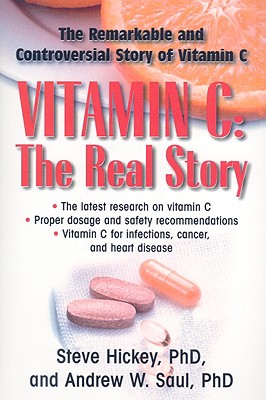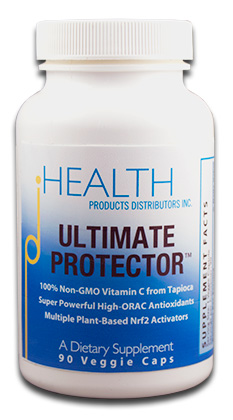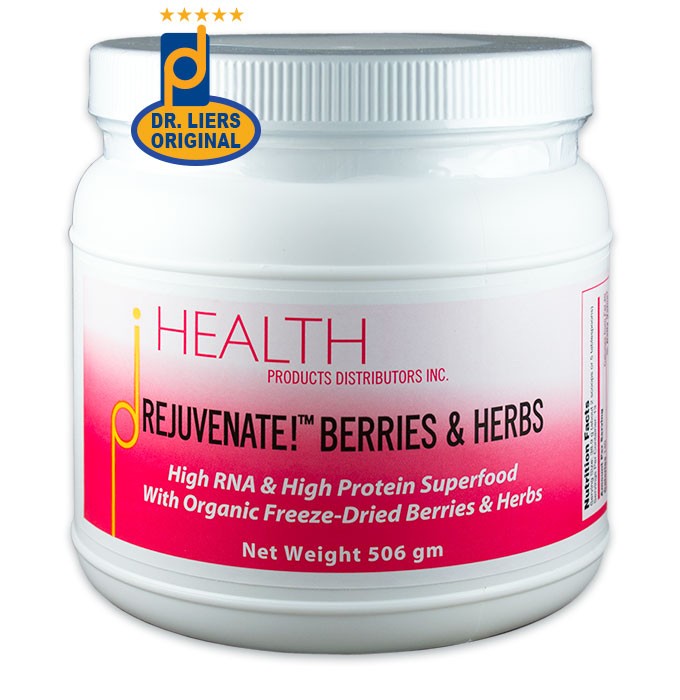The Orthomolecular News Service (OMNS) recently published “A Timeline of Vitamin Medicine” by Andrew W. Saul, PhD, on its website (www.orthomolecular.org). Dr. Saul’s timeline presents major year-by-year scientific findings regarding vitamins and their health benefits from 1935 to the present. You can learn a lot by reading it.
It’s not every day you see a synopsis of vitamin medicine spanning nearly 80 years. In fact, this information is freely available in libraries and on the Internet. But Andrew W. Saul (as in “the” Andrew W. Saul, PhD, author and editor of books and articles on orthomolecular medicine) has done everyone a huge favor by compiling this information into a handy timeline of vitamin medicine.
One thing is clear. Vitamins and vitamin medicine have a long and successful history of use for their benefits to health. It’s not for nothing Andrew Saul calls it a timeline of “vitamin medicine.” Orthomolecular medicine emphasizes the use of vitamins and other natural substances to support optimal health. Hence his title, “A Timeline of Vitamin Medicine.”
VITAMIN MEDICINE: A RECORD OF SAFETY & EFFECTIVENESS
As I noted, the vitamin medicine timeline is a history of groundbreaking findings and published medical research on vitamins. It’s great information, yet Dr. Saul compiled it for a reason. Recently, several studies have been published casting doubt on the effectiveness of multivitamins.
Most of these studies can be discredited based on the fact that the multivitamins used were of low potency and/or not ideal forms (e.g., not coenzyme vitamins). Other studies attempt to show that vitamins are dangerous.
Dr. Saul seeks to set the record straight. He writes:
“Don’t get bogged down by silly claims that multiple vitamins kill, or that antioxidants are bad for you. It is high time to take a look at the record, and review what published medical research actually has been saying for eight decades.”
Dr. Saul’s introduction may sound dramatic. But recall that routinely there are published articles, news reports, and “studies” in the media downplaying or denying the effectiveness of vitamins.
For individuals in the know, such as Andrew Saul, there must be a counterpoint to the misinformation, omission, obfuscation, and double-speak that commonly surrounds this topic. His vitamin medicine timeline puts things into perspective. The timeline underscores the reality of vitamin medicine. (You may also wish to read my earlier blog article, “Why Nutritional Supplements are Vital for Optimal Health.”)
What I like most here is that Dr. Saul tells people to “take a look and decide for yourself.” In other words, don’t blindly accept someone else’s statements as fact. Instead, look around, see the evidence that’s available, and think for yourself. Find the information that’s freely accessible and make informed decisions based upon it. That’s a formula for making educated choices regarding vitamins, “vitamin medicine,” and nutrition for health.
Dr. Saul goes on to state:
“For specific references on these subjects, just copy and paste any of the brief descriptions above into a search engine and press ‘enter.’ Doctors and reporters that say ‘they have not seen any good evidence that vitamins cure disease’ are telling you the truth: yes, they have never seen it. That’s not because it isn’t available; it’s because they have never done even this simple step.”
Search engines like Google are a great place to start. Search engines searches will yield plenty of useful results. One place they likely will take you is PubMed, the National Institutes for Health (NIH) online citation resource. PubMed claims to comprise more than 23 million citations for biomedical literature from MEDLINE, life science journals, and online books.
In order to get started, Dr. Saul suggests you “copy, paste, search” online. I presume you know how to use Google or Yahoo. But here is a direct link to PubMed, so you can get started today or even right now:
http://www.ncbi.nlm.nih.gov/pubmed
DR. ANDREW W. SAUL: CREDIBLE, ESTEEMED, PROLIFIC
We at HPDI have always been impressed by Andrew W. Saul, PhD and his works. He has published more than 180 peer-reviewed articles, and authored or co-authored 12 books. These books include Orthomolecular Medicine for Everyone: Megavitamin Therapeutics for Families and Physicians and Doctor Yourself: Natural Healing That Works. Dr. Saul’s website, DoctorYourself.com, is the largest peer-reviewed, non-commercial natural healing resource on the Internet. He was inducted into the Orthomolecular Medicine Hall of Fame in 2013.
I recently read Vitamin C: The Real Story, which Dr. Saul coauthored with Steve Hickey, PhD. You may think you know everything about vitamin C. But there is lots of new information available that will transform how you think about it. And bring you up to date on new developments in its use.
In fact, Vitamin C: The Real Story is a must read for anyone seeking to learn more about the powerful effects of vitamin C for health and healing. Moreover, it’s indispensable for understanding the current and potential future applications of vitamin C in the realms of natural medicine and orthomolecular medicine, or more specifically “vitamin medicine.”

Given his esteemed background in orthomolecular medicine, and his experience with it for many years, who is more qualified than Dr. Saul to compile a vitamin medicine timeline? Certainly not most conventionally trained physicians, the majority of whom receive little or no training in nutrition and certainly even less with respect to dietary supplements.
It is no therefore no surprise that many conventional doctors regard vitamin medicine as a contradiction in terms. But even a cursory look at Dr. Saul’s timeline of vitamin medicine reveals the opposite. Vitamins naturally exert valuable therapeutic effects and provide significant benefits to health. You can gain these benefits by taking nutritional supplements.
INSPIRING HPDI’S FORMULATION OF NUTRITIONAL SUPPLEMENTS
It is exceptional individuals such as Dr. Andrew Saul and others like Dr. Abraham Hoffer and Dr. Linus Pauling who inspire the evolution of our thinking about nutritional supplements and their role in vitamin medicine.
HPDI has developed a system of foundational supplements formulated as the basis of a complete nutritional supplement program for health.
HPDI offers four types of foundational supplements. These include 1) multivitamins, 2) antioxidants & vitamin C formulas (like Ultimate Protector™), 3) essential fatty acid formulas, and 4) Rejuvenate!™ superfoods formulated to provide high levels of dietary nucleic acids.

Click here to learn more about HPDI Foundational Supplements.
We are grateful to the Orthomolecular Medicine New Service (OMNS) for freely allowing use and distribution of their articles. We include the full text of Dr. Andrew W. Saul’s “A Timeline of Vitamin Medicine” for your reading pleasure. Enjoy it!
~~~
A TIMELINE OF VITAMIN MEDICINE
BY ANDREW W. SAUL, EDITOR
(OMNS Feb 15, 2014) Don’t get bogged down by silly claims that multiple vitamins kill, or that antioxidants are bad for you. It is high time to take a look at the record, and review what published medical research actually has been saying for eight decades.
YEAR |
RESEARCH |
|---|---|
| 1935 | Claus Washington Jungeblut, MD, professor of bacteriology at Columbia University, first publishes on vitamin C as prevention and treatment for polio; in the same year, Jungeblut also shows that vitamin C inactivates diphtheria toxin. |
| 1936 | Evan Shute, MD, and Wilfrid Shute, MD, demonstrate that vitamin E-rich wheat germ oil cures angina. |
| 1937 | Dr. Jungeblut demonstrates that ascorbate (vitamin C) inactivated tetanus toxin. |
| 1939 | William Kaufman, MD, PhD, successfully treats arthritis with niacinamide (vitamin B3). |
| 1940 | The Shute brothers publish that vitamin E prevents fibroids and endometriosis, and is curative for atherosclerosis. |
| 1942 | Ruth Flinn Harrell, PhD, measures the positive effect of added thiamine (B1) on learning. |
| 1945 | Vitamin E is shown to cure hemorrhages in the skin and mucous membranes, and to decrease the diabetic’s need for insulin. |
| 1946 | Vitamin E is shown to greatly improve wound healing, including skin ulcers. It is also demonstrated that vitamin E strengthens and regulates heartbeat, and is effective in cases of claudication, acute nephritis, thrombosis, cirrhosis, and phlebitis; also, William J. McCormick, MD, shows how vitamin C prevents and also cures kidney stones. |
| 1947 | Vitamin E is successfully used as therapy for gangrene, inflammation of blood vessels (Buerger’s disease), retinitis, and choroiditis; Roger J. Williams, PhD, publishes on how vitamins can be used to treat alcoholism. |
| 1948 | Frederick R. Klenner, MD, a board-certified specialist in diseases of the chest, publishes cures of 41 cases of viral pneumonia using very high doses of vitamin C. |
| 1949 | Dr. Kaufman publishes The Common Form of Joint Dysfunction. |
| 1950 | Vitamin E is shown to be an effective treatment for lupus erythematosus, varicose veins, and severe body burns. |
| 1951 | Vitamin D treatment is found to be effective against Hodgkin’s disease (a cancer of the lymphatic system) and epithelioma. |
| 1954 | Abram Hoffer, MD, PhD, and colleagues demonstrate that niacin (vitamin B3) can cure schizophrenia; the Shutes’ medical textbook Alpha Tocopherol in Cardiovascular Disease is published; and Dr. McCormick reports that cancer patients tested for vitamin C were seriously deficient, often by as much as 4,500 milligrams. |
| 1955 | Niacin is first shown to lower serum cholesterol. |
| 1956 | Mayo Clinic researcher William Parsons, MD, and colleagues confirm Hoffer’s use of niacin to lower cholesterol and prevent cardiovascular disease; Dr. Harrell demonstrates that supplementation of the pregnant and lactating mothers’ diet with vitamins increases the intelligence quotients of their offspring at three and four years of age. |
| 1957 | Dr. McCormick publishes on how vitamin C fights cardiovascular disease. |
| 1960 | Dr. Hoffer meets Bill W., cofounder of Alcoholics Anonymous, and uses niacin to eliminate Bill’s longstanding severe depression. |
| 1963 | Vitamin D is shown to prevent breast cancer. |
| 1964 | Vitamin D is found to be effective against lymph nodal reticulosarcoma (a non-Hodgkin’s lymphatic cancer). |
| 1968 | Linus Pauling, PhD, publishes the theoretical basis of high-dose nutrient therapy (orthomolecular medicine) in psychiatry in Science, and soon after defines orthomolecular medicine as “the treatment of disease by the provision of the optimum molecular environment, especially the optimum concentrations of substances normally present in the human body.” |
| 1969 | Robert F. Cathcart, MD, uses large doses of vitamin C to treat pneumonia, hepatitis, and, years later, acquired immune deficiency syndrome (AIDS). |
| 1970 | Dr. Pauling publishes Vitamin C and the Common Cold and Dr. Williams publishes Nutrition Against Disease. |
| 1972 | Publication of The Healing Factor: “Vitamin C” Against Disease by Irwin Stone, PhD. |
| 1973 | Dr. Klenner publishes his vitamin supplement protocol to arrest and reverse multiple sclerosis. So does Dr. HT Mount, reporting on 27 years of success using thiamine. |
| 1975 | Hugh D. Riordan, MD, and colleagues successfully use large doses of intravenous vitamin C against cancer. |
| 1976 | Ewan Cameron, MD, and other physicians in Scotland show that intravenous vitamin C improved quality and length of life in terminal cancer patients |
| 1982 | In Japan, Murata, Morishige, and Yamaguchi show that vitamin C greatly prolonged the lives of terminal cancer patients. |
| 1984 | Robert F. Cathcart, MD, publishes on the vitamin C treatment of AIDS. |
| 1986 | Publication of How to Live Longer and Feel Better by Linus Pauling. |
| 1988 | Dr. Lendon H. Smith publishes Vitamin C as a Fundamental Medicine: Abstracts of Dr. Frederick R. Klenner, M.D.’s Published and Unpublished Work, now known as Clinical Guide to the Use of Vitamin C. |
| 1990 | American doctors successfully use vitamin C to treat kidney cancer, and in 1995 and 1996, other cancers. |
| 1993 | Large-scale studies show that vitamin E supplementation reduces the risk of coronary heart disease in men and women. |
| 1995 | Dr. Riordan and colleagues publish their protocol for intravenous vitamin C treatment of cancer. |
| 2002 | Vitamin E shown to improve immune functions in patients with advanced colorectal cancer, by immediately increasing T helper 1 cytokine production. |
| 2004 | Doctors in America and Puerto Rico publish more clinical cases of vitamin C successes against cancer. |
| 2005 | Research sponsored by the U.S. National Institutes of Health shows that high levels of vitamin C kill cancer cells without harming normal cells. |
| 2006 | Canadian doctors report intravenous vitamin C is successful in treating cancer. |
| 2007 | Harold D. Foster and colleagues publish a double-blind, randomized clinical trial showing that HIV-positive patients given supplemental nutrients can delay or stop their decline into AIDS. |
| 2008 | Korean doctors report that intravenous vitamin C “plays a crucial role in the suppression of proliferation of several types of cancer,” notably melanoma. And, natural vitamin E is demonstrated to substantially reduce risk of lung cancer by 61%. |
| 2009, 2010, 2012 | Intravenous Vitamin C and Cancer Symposiums filmed and made available for free-access online. http://www.riordanclinic.org/education/symposium/s2009 (twelve lectures), http://www.riordanclinic.org/education/symposium/s2010 (nine lectures) andhttp://www.riordanclinic.org/education/symposium/s2012 (eleven lectures) |
| 2011 | Each 20 micromole/liter (µmol/L) increase in plasma vitamin C is associated with a 9% reduction in death from heart failure. Also, B complex vitamins are associated with a 7 percent decrease in mortality, vitamin D with an 8 percent decrease in mortality. |
| 2012 | Vitamin C shown to prevent and treat radiation-damaged DNA. |
| 2013 | B-vitamin supplementation seen to slow the atrophy of specific brain regions that are a key component of the Alzheimer’s disease process and are associated with cognitive decline. |
| 2014 | In patients with mild to moderate Alzheimer’s disease, 2,000 IU of natural vitamin E slows the decline compared to placebo. Data from 561 patients showed that those taking vitamin E function significantly better in daily life, and required the least care. Vitamin C greatly reduces chemotherapy side effects and improves cancer patient survival. |
For specific references on these subjects, just copy and paste any of the brief descriptions above into a search engine and press “enter.” Doctors and reporters that say “they have not seen any good evidence that vitamins cure disease” are telling you the truth: yes, they have never seen it. That’s not because it isn’t available; it’s because they have never done even this simple step.
Copy, paste and search. There is a whole body of knowledge out there. Take a look and decide for yourself.
NUTRITIONAL MEDICINE IS ORTHOMOLECULAR MEDICINE
Orthomolecular medicine uses safe, effective nutritional therapy to fight illness. For more information: http://www.orthomolecular.org
FIND A DOCTOR
To locate an orthomolecular physician near you:http://orthomolecular.org/resources/omns/v06n09.shtml
The peer-reviewed Orthomolecular Medicine News Service is a non-profit and non-commercial informational resource.
Editorial Review Board:
Ian Brighthope, M.D. (Australia)
Ralph K. Campbell, M.D. (USA)
Carolyn Dean, M.D., N.D. (USA)
Damien Downing, M.D. (United Kingdom)
Dean Elledge, D.D.S., M.S. (USA)
Michael Ellis, M.D. (Australia)
Martin P. Gallagher, M.D., D.C. (USA)
Michael Gonzalez, D.Sc., Ph.D. (Puerto Rico)
William B. Grant, Ph.D. (USA)
Steve Hickey, Ph.D. (United Kingdom)
Michael Janson, M.D. (USA)
Robert E. Jenkins, D.C. (USA)
Bo H. Jonsson, M.D., Ph.D. (Sweden)
Peter H. Lauda, M.D. (Austria)
Thomas Levy, M.D., J.D. (USA)
Stuart Lindsey, Pharm.D. (USA)
Jorge R. Miranda-Massari, Pharm.D. (Puerto Rico)
Karin Munsterhjelm-Ahumada, M.D. (Finland)
Erik Paterson, M.D. (Canada)
W. Todd Penberthy, Ph.D. (USA)
Gert E. Schuitemaker, Ph.D. (Netherlands)
Robert G. Smith, Ph.D. (USA)
Jagan Nathan Vamanan, M.D. (India)
Atsuo Yanagisawa, M.D., Ph.D. (Japan)
Andrew W. Saul, Ph.D. (USA), Editor and contact person.
Email: omns@orthomolecular.org This is a comments-only address; OMNS is unable to respond to individual reader emails. However, readers are encouraged to write in with their viewpoints. Reader comments become the property of OMNS and may or may not be used for publication.
~ END OF “A TIMELINE OF VITAMIN MEDICINE” ~
CONCLUSIONS
Dr. Andrew Saul’s timeline of vitamin medicine underscores the fact that the use of vitamins for health and healing rests on a scientific, evidence-based foundation. This scientific background will not easily disappear just because certain people don’t like it, or don’t want to believe it.
Just the opposite, in fact. The deeper science looks at vitamins and other orthomolecular substances, the more they prove safe, reliable, and effective.
Vitamin medicine is here to stay because it is real and it works. Just Google it for yourself.
RESOURCES
PubMed: http://www.ncbi.nlm.nih.gov/pubmed
“A Timeline of Vitamin Medicine” on the OMNS website: http://www.orthomolecular.org/resources/omns/v10n08.shtml
Subscribe to OMNS: http://www.orthomolecular.org/subscribe.html
OMNS Archive: http://orthomolecular.org/resources/omns/index.shtml
FROM THE HPDI BLOG
WHY NUTRITIONAL SUPPLEMENTS ARE VITAL FOR OPTIMAL HEALTH
HPDI FOUNDATIONAL FORMULAS
HPDI MULTIVITAMINS
VITAMIN C FORMULAS
ESSENTIAL FATS
REJUVENATE!™ SUPERFOODS
ULTIMATE PROTECTOR™ (NRF2 ACTIVATION)




